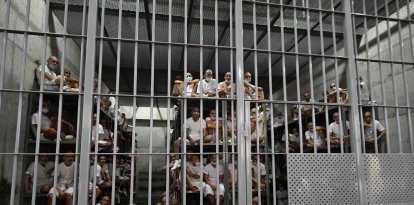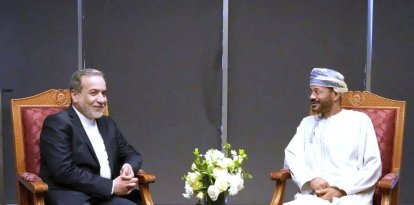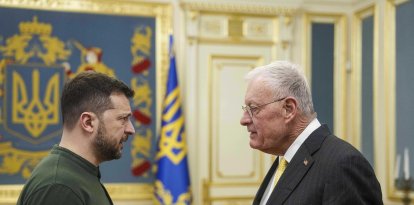Blinken says it may be “last chance” for cease-fire between Israel and Hamas
His arrival follows two days of intense talks in Doha, where mediators from the U.S., Egypt and Qatar have been working to reach an agreement.

Antony Blinken in the Benjamin Franklin Room of the State Department in Washington, DC.
U.S. Secretary of State Antony Blinken arrived in Israel on Sunday at a crucial time for negotiations seeking to establish a cease-fire in the conflict with Hamas. The trip is part of his intense efforts to consolidate an agreement that also provides for the release of hostages amid a complicated landscape marked by the recent death of top Hezbollah commander and Hamas political leader Ismail Haniyeh.
During his visit, the U.S. chief diplomat said the current negotiations are “maybe the last chance” to reach an agreement to end the war in Gaza. “This is a decisive moment — probably the best, maybe the last, opportunity to get the hostages home, to get a cease-fire and to put everyone on a better path to enduring peace and security,” Blinken said as he met with Israeli President Isaac Herzog.
“We are working to make sure that there is no escalation, no provocation, that there are no actions that in any way can move us away from moving this deal over the line or, for that matter, escalating the conflict to other places and to greater intensity," he said.
For his part, Herzog affirmed that the Israelis want the return “as soon as possible” of the hostages who have remained in Gaza since the October 7 attacks. “There is no greater humanitarian objective and there’s no greater humanitarian cause than bringing back our hostages home,” Herzog told Blinken.
Blinken, who has traveled repeatedly to the Middle East since the outbreak of the war after the Oct. 7 Hamas attack, met with Israeli leaders including Prime Minister Benjamin Netanyahu. His visit follows two days of intense negotiations in Doha, where U.S., Egyptian and Qatari mediators have been trying to clinch a hostage deal in exchange for a cease-fire.
However, the mediation process faces significant obstacles. Hamas called the recent proposals "wishful thinking," arguing that they are too closely aligned with Israeli demands. Sami Abu Zuhri, Hamas spokesman, accused the Biden administration of imposing unacceptable conditions and Netanyahu of obstructing negotiations.
Israel is carefully evaluating the proposals and may have reservations about certain conditions that have been added, believing that accepting those demands could negatively affect its security or strategic interests.
Challenges in the negotiations
The proposed framework for the cease-fire, backed by the U.N., includes an initial six-week pause, but faces obstacles due to new Israeli demands, such as a military presence on the Gaza-Egypt border. Hamas insists on a full withdrawal of Israeli troops as a precondition for an end to the war, further complicating negotiations.
Prospects and next steps
As new talks in Cairo approach, scheduled for next week, the international community is closely monitoring efforts to reach an agreement to end hostilities. The Biden administration, seeking to finalize the deal before attention is diverted to the November presidential election, is pushing for a significant breakthrough at the upcoming summits.
Context of the conflict and hostages
The conflict, which began on October 7, has caused a significant violent escalation. Hamas terrorists entered Israel, killing approximately 1,200 people, mostly civilians, and kidnapped 251 individuals.
In late November, Hamas released 105 civilians during a week-long truce and had previously released four hostages. Israeli troops rescued seven hostages and recovered the bodies of 24 hostages, three of whom were accidentally killed during themilitary operations while attempting to escape.
RECOMMENDATION





















